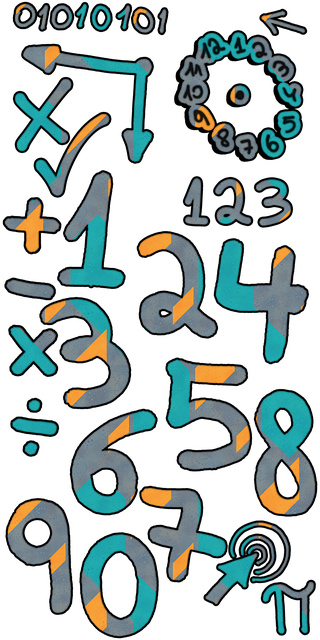Holistic wellness programs offer a comprehensive approach to addiction and mental health recovery, addressing root causes through physical, emotional, and spiritual well-being integration. Key components include nutrition planning, exercise routines, stress management techniques, and online self-help resources for addiction recovery. These digital platforms provide accessible education, support, and skill development tools, including crisis intervention training and mental health help. Nutrition, exercise, and stress management are essential practices that empower individuals to take charge of their mental health journey, enhancing resilience and promoting lasting well-being.
Holistic wellness programs are transforming addiction recovery by addressing the mind, body, and spirit. This comprehensive approach recognizes that achieving overall well-being requires more than just treating symptoms—it involves nurturing every aspect of an individual’s life. By integrating nutrition, exercise, and stress management techniques, these programs empower people on their journey to recovery, offering sustainable tools for long-term success.
In this article, we explore the crucial roles of nutrition and exercise in addiction recovery, along with effective stress management strategies utilizing online self-help resources specifically tailored for overcoming addiction.
- Understanding Holistic Wellness Programs: A Comprehensive Approach to Recovery
- The Role of Nutrition and Exercise in Addiction Recovery
- Stress Management Techniques for Enhanced Well-being: Online Self-Help Resources
Understanding Holistic Wellness Programs: A Comprehensive Approach to Recovery

Holistic wellness programs take a comprehensive approach to recovery, addressing not just the symptoms but the underlying causes of addiction and other mental health issues. Unlike traditional treatment models that often focus solely on abstinence or medication, holistic programs emphasize the interconnectedness of physical, emotional, and spiritual well-being. By integrating nutrition planning services, regular exercise routines, and stress management techniques, these programs equip individuals with essential tools to achieve optimal health recovery.
Online self-help resources for addiction recovery play a significant role in this process, offering accessible avenues for education, support, and skill development. Crisis intervention training, for instance, teaches individuals how to recognize emergency situations and respond effectively. Mental health help is readily available through these platforms, providing continuous support beyond traditional therapy sessions. This comprehensive approach not only enhances the effectiveness of recovery but also fosters resilience, enabling individuals to navigate life’s challenges with greater ease and balance.
The Role of Nutrition and Exercise in Addiction Recovery

Nutrition and exercise play pivotal roles in holistic wellness programs designed to support individuals navigating addiction recovery. While traditional treatments often focus on addressing the psychological aspects of addiction, incorporating healthy eating habits and regular physical activity is crucial for long-term success. Online self-help resources for addiction recovery highlight the significant benefits of prioritizing nutrition as a key component in rebuilding one’s body and mind. A balanced diet, rich in essential nutrients, helps restore vitality and enhances overall well-being, providing the foundation necessary to withstand cravings and emotional triggers.
Exercise, another critical pillar of holistic wellness programs, offers numerous advantages for those in recovery. Physical activity stimulates the release of endorphins, natural mood elevators that can reduce stress and anxiety while promoting feelings of happiness and relaxation. Moreover, regular exercise helps establish healthy sleep habits, which are essential for cognitive function and emotional balance. Coaching sessions focused on integrating healthy sleep habits into daily routines further strengthens the recovery journey by ensuring individuals are well-rested and equipped to face challenges with renewed energy and clarity.
Stress Management Techniques for Enhanced Well-being: Online Self-Help Resources

Incorporating stress management techniques is a vital component of holistic wellness programs, as it enhances overall well-being and promotes a healthier lifestyle. Online self-help resources have emerged as powerful tools for individuals seeking to overcome challenges and improve their mental health. These digital platforms offer accessible and convenient options for those looking to manage stress, especially in the context of addiction recovery. Many online resources provide evidence-based strategies tailored to various aspects of wellness, including mindfulness exercises, cognitive behavioral therapy (CBT) techniques, and relaxation practices.
By leveraging online self-help resources for addiction recovery, individuals can access Crisis Intervention Training materials and Mental Health Help services from the comfort of their homes. These platforms often feature interactive tools, support groups, and educational content that cater to diverse needs. With a wide range of topics, from stress management to building resilience, these resources empower users to take charge of their mental health journey and cultivate lasting well-being.
Holistic wellness programs offer a transformative path to recovery by addressing the interconnectedness of nutrition, exercise, and stress management. This comprehensive approach empowers individuals to take control of their well-being, utilizing evidence-based practices and leveraging online self-help resources for addiction recovery. By integrating these key components, holistic programs foster sustainable mental, physical, and emotional health, ultimately enhancing the quality of life for those seeking a healthier future.






